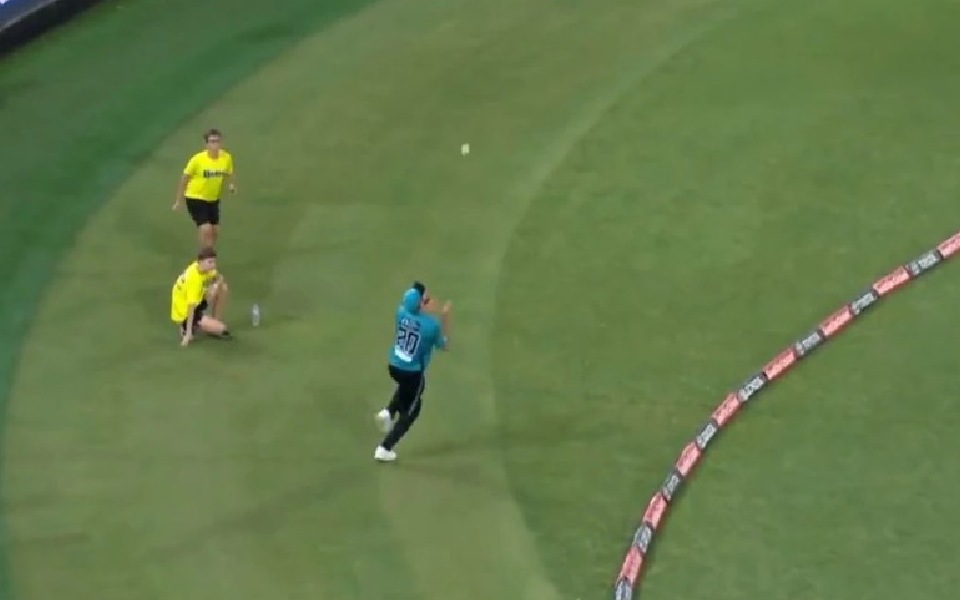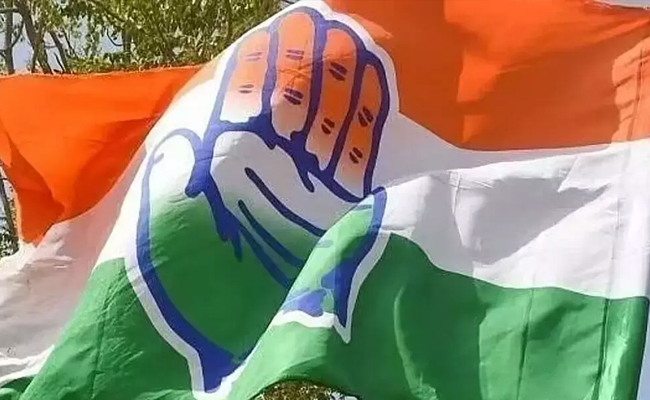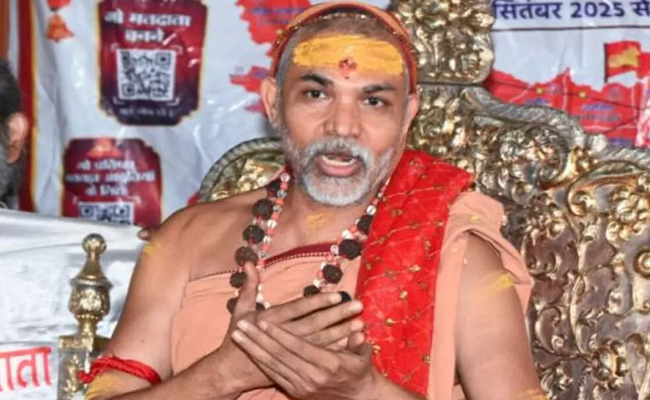London, Jun 14 (PTI): Boundary catches involving 'bunny hops', or multiple airborne touches outside the rope, have been deemed illegal by the Marylebone Cricket Club, with the new ruling set to be integrated into ICC's playing conditions this month and the MCC's laws from October next year.
Spectacular catches like the ones pulled off by Michael Neser during BBL 2023 and Tom Banton, with Matt Renshaw's help in 2020, will not be considered legal once the updated rule comes into force.
According to an MCC note circulated to member boards by the ICC, while the existing law "led to some spectacular" fielding efforts, it also allowed "some unusual-looking catches that, to the majority of the cricketing public, feel unfair".
Describing Neser's catch for Brisbane Heat to dismiss Jordan Silk, the MCC said the fielder "bunny hopped" before completing the catch inside the boundary. While the act complied with the law at the time, the note added it "felt like the fielder had - quite literally - gone too far".
Both instances triggered widespread debate, prompting the ICC and MCC to review Law 19.5.2, which was last updated in 2010.
As part of its revision, the MCC clarified that any fielder making a second contact with the ball after jumping from beyond the boundary must land inside the field of play, or else a boundary will be awarded.
"MCC has devised a new wording where the 'bunny hop' wholly beyond the boundary is removed, but these catches where the fielder pushes the ball up from inside the boundary, steps outside and then dives back in to catch the ball, are permitted," the note said.
"Our solution has been to limit any fielder who has gone outside the boundary to touching the ball while airborne only once, and then, having done so, to be wholly grounded within the boundary for the rest of the duration of that delivery."
The rule will also apply to relay catches. If a fielder parries the ball while airborne outside the boundary and fails to return inside the field before the catch is completed — even by a teammate — it will be ruled a boundary.
"Even if the ball is parried - to another fielder or inside the field of play - if the fielder lands outside the boundary, or subsequently steps outside, then a boundary will be scored.
"For clarity, that means the fielder gets one chance, and one chance only, to touch the ball having jumped from outside the boundary. After that point, the boundary becomes a hard line - and any time they touch the ground in that delivery, whatever else happens, they must be inside."
The revised rule will be enforced starting June 17, when the new World Test Championship (WTC) cycle begins with Sri Lanka taking on Bangladesh in Galle. The change in the laws will officially take effect from October 2026.
Two-ball, concussion rule changes
The ICC has also approved the two-ball rule changes in ODIs along with the concussion substitute regulations in men’s cricket.
At present, two new balls are being used per innings — one at either end.
But from now on, two new balls are permitted to be used until the 34th over, and after that particular over, the bowling side will choose one of the two balls for the rest of the innings (35th to 50th over).
But if the match is reduced to 25 overs a side or less before the first innings, then only one new ball will be allowed to use.
As per amended concussion protocols, the teams will have to name their substitutes to the match referee before the match, and it includes one each of wicketkeeper, batter, pace bowler, spinner and all-rounder.
The MCC has changed the law to make catches like this 'bunny hop' one from Michael Neser illegal. In short:
— 7Cricket (@7Cricket) June 14, 2025
If the fielder's first touch takes them outside the boundary, their *second* touch must take them back inside the field of play.
Basically, you're no longer allowed to… pic.twitter.com/1jaqAev0hy
Let the Truth be known. If you read VB and like VB, please be a VB Supporter and Help us deliver the Truth to one and all.
Nagpur (PTI): A student from Maharashtra drowned and another went missing after venturing into the sea in Chennai, officials said on Sunday.
It was not yet known which institution the students were from and where exactly the incident occurred.
The Maharashtra government has appealed to the Tamil Nadu authorities to expedite the search and rescue operation.
The incident occurred on Saturday when a group of 26 students went to the seashore.
Three of them entered the waters where Mayuri Chaudhari from Nagpur drowned, while Jay Patil went missing and a search was underway for him, a statement from the Maharashtra Chief Minister's Office said.
Another student, Raj Kedari, was rescued safely, it said.
Maharashtra CM Devendra Fadnavis has contacted the Tamil Nadu government and is overseeing relief efforts. He urged the Tamil Nadu government to provide immediate aid and launch a rescue operation.
The family members of Chaudhari and Patil have been informed.





